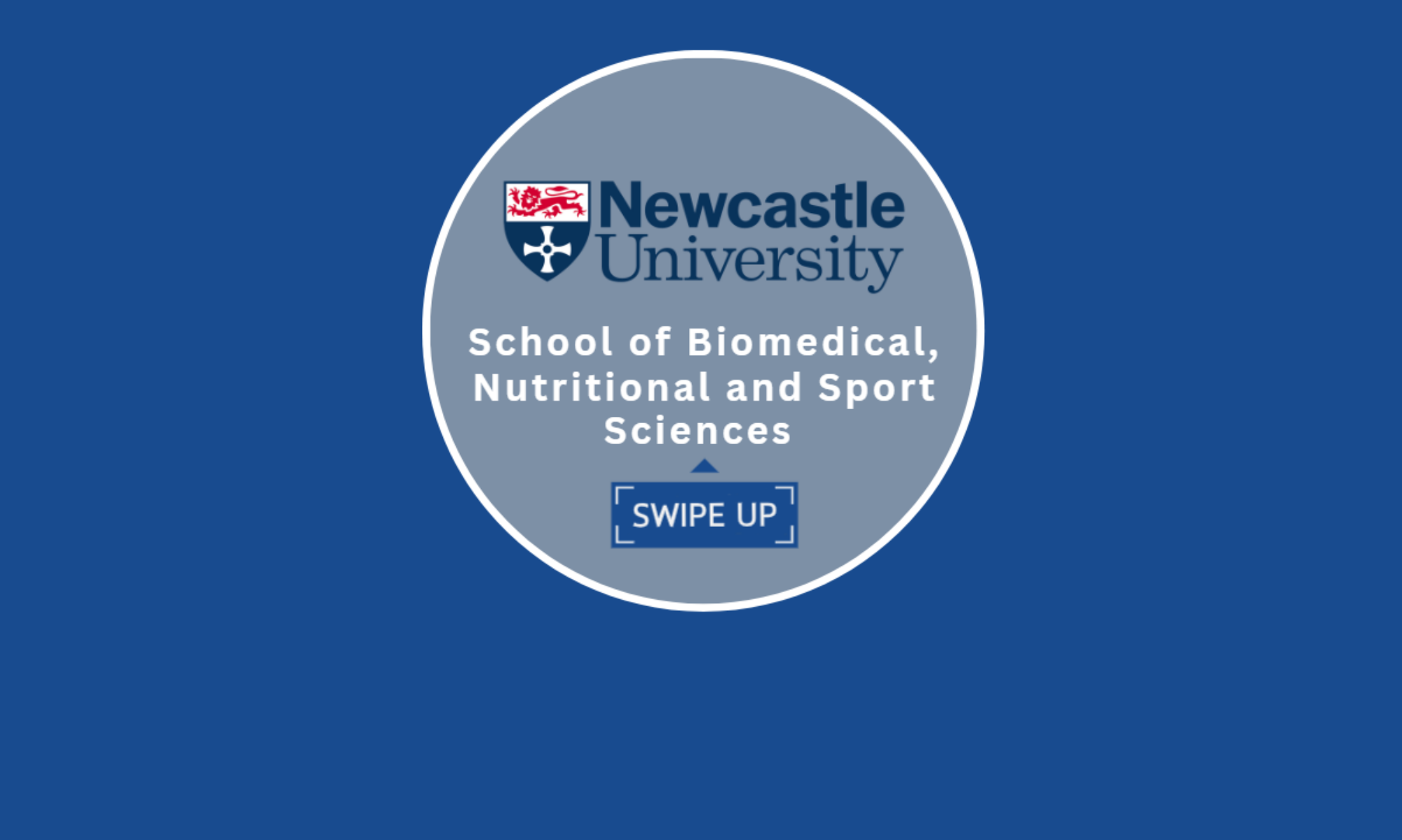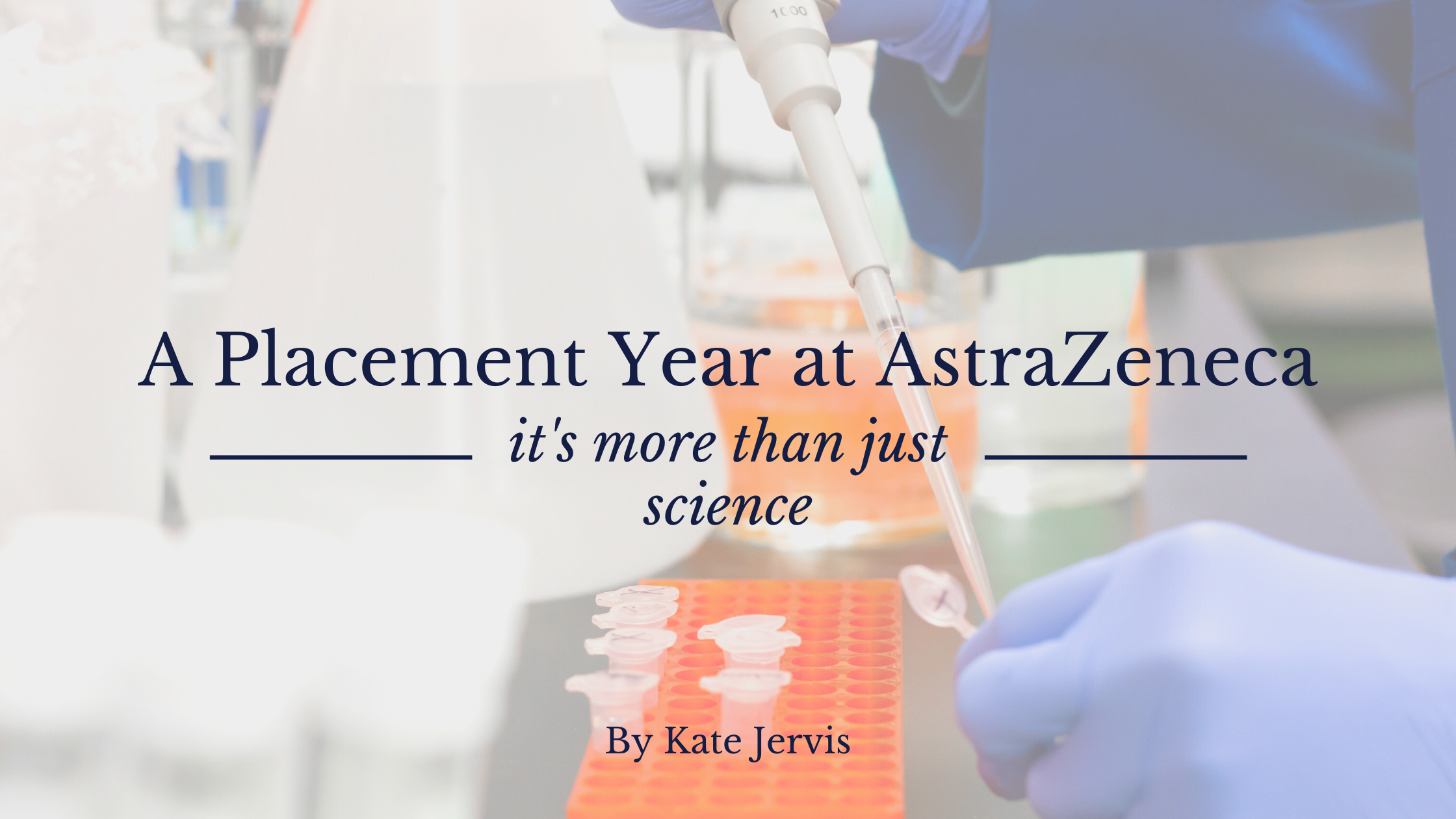By Kate Jervis
When I first found out I had a placement at AstraZeneca (AZ), I thought I had a pretty good idea of what my days would be – hours and hours working in the lab, writing up experiments and poring over graphs. Maybe, I thought, I can improve my communication skills by presenting data to my team. But even with the unexpected shakeup of lockdown and coronavirus, I didn’t realise just how oversimplified my idea of a lab-based placement was.
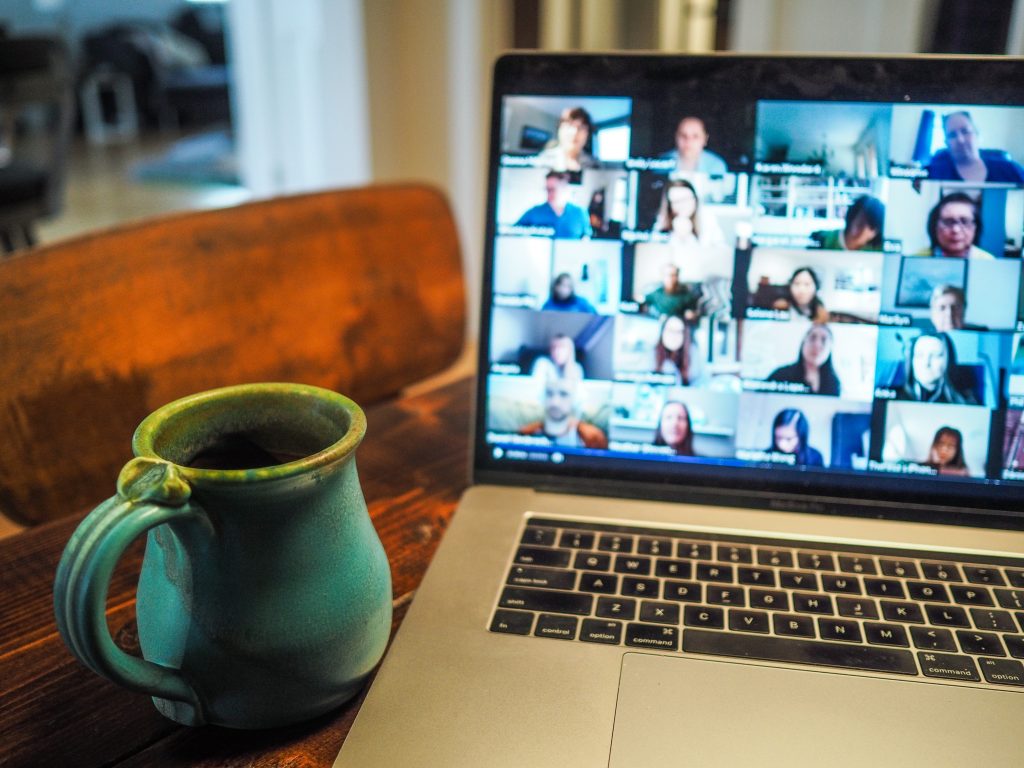
I am a fan of lab work, but anyone who knows me well can tell you that one of my favourite pastimes is admin. I have no shame in admitting that I’m the person who finds joy in organising an inbox, or drawing up spreadsheets to track a team’s progress through a big task. It’s a strange hobby, but it’s satisfying, and so when I saw adverts to recruit a new AZ early talent committee, I could hardly not apply for the role of secretary. I had no professional secretarial experience, but it sounded so me!
At this point I was still in the office a few days a week but social distancing and reduced building capacity meant that meeting people was a challenge, and joining a committee felt like a perfect way to build relationships. It was also something I’d never done before – the network this committee served at the time had over 230 members – so a new level of responsibility felt like the perfect way to put my organisational skills to good use.
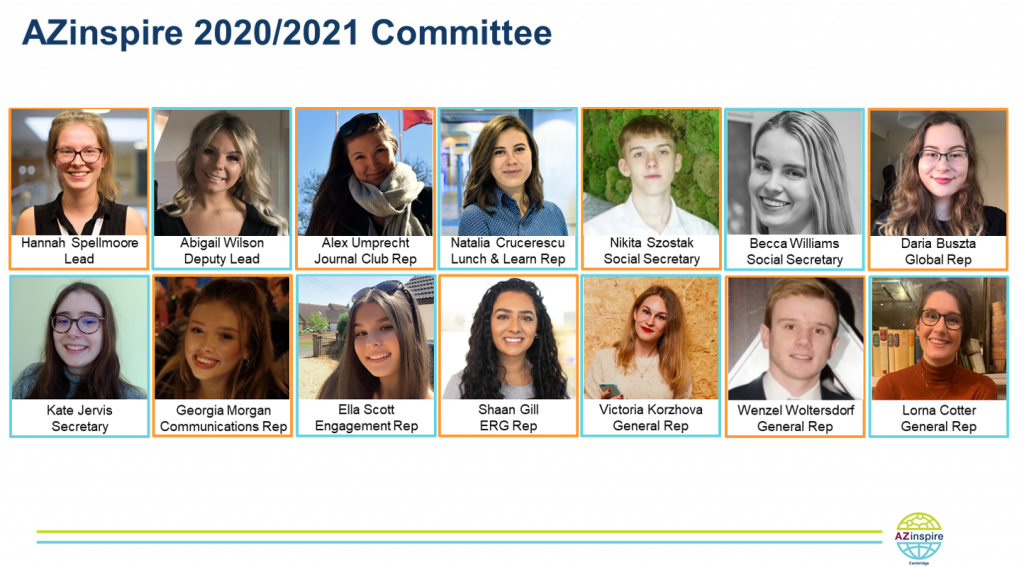
As the role would benefit my career development, my supervisor wholeheartedly supported me giving up a couple of hours a week to work with AZinspire, who run events for placement students, apprentices, graduates and postgraduates across the Cambridge sites. My application was successful and before I knew it I was minute-taking for meetings, managing committee communications and updating distribution lists left right and centre.
As much as I love working on the science, it felt good to have a hand in something with shorter-term, more tangible impacts.
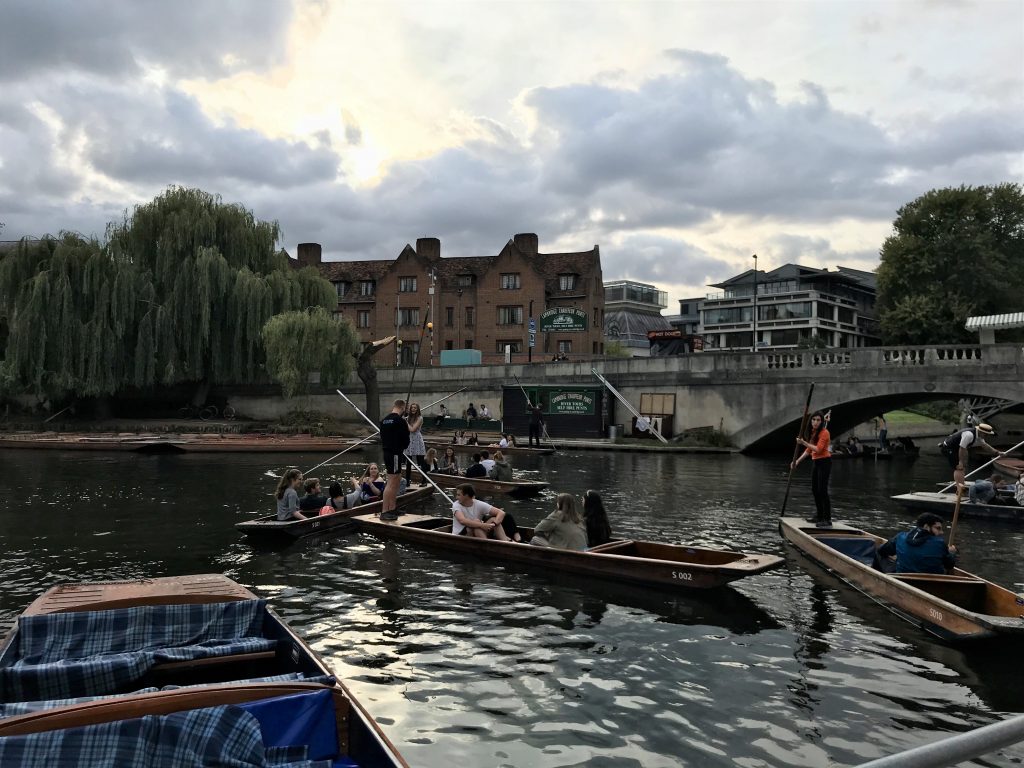
My first big job came late December, where I got a taste of event planning by helping to organise a week-long symposium focused on the skills needed to work from home. A small team of us were tasked to identify key speakers, arrange practical and relevant talks that fit the theme and audience, and publicise it enough to get a good turnout.
This was to be done around our usual 9-5 duties, and with an impossibly quick turnaround – our first meeting was the week before Christmas and the symposium started on 18th January! As event planning goes, I was definitely thrown in at the deep end.
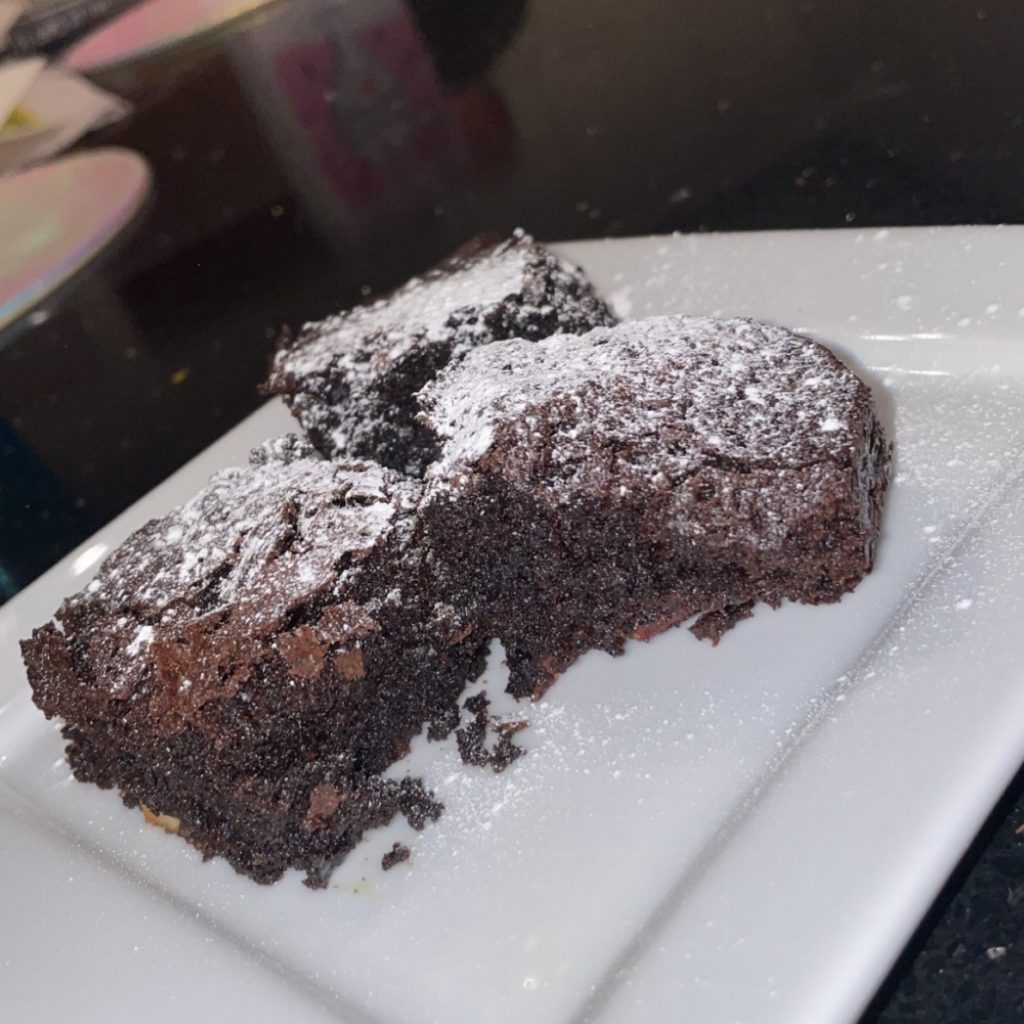
But it was brilliant. The team split up and delegated tasks, but still supported each other when big decisions were made. I found a way to keep track of everyone’s progress so that as the big day approached, we all knew exactly what still needed to be done.
I took charge of arranging a session on career confidence and imposter syndrome, consulting with the CEO of a leading wellbeing training company, and helped design a tailored 2-hour event covering the topics key to our demographic.
In the week leading up to the symposium we received the most new members AZinspire Cambridge had ever seen, growing our network by 15% on event hype alone! Attendance for all sessions was unexpectedly high, and we received brilliant feedback. I was hooked.
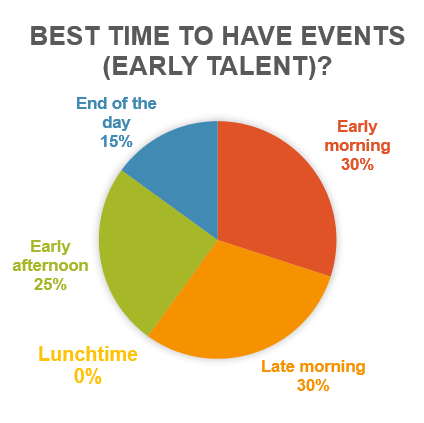
Since organising this event I’ve taken on a greater role in AZinspire’s events programme: I’m currently organising cross-site coffee meetings and planning the network’s Socials Month. Thinking about my confidence over the years, especially as an autistic person, it can be hard for me to remember just how much I’ve grown and how capable I am now.
The work I’ve done already with AZinspire would have been a stretch for 2019 Kate, and downright unthinkable for 2016 Kate. But I have done it, and more than that, I enjoyed it, and for me that’s where so much of the value of a placement year is. It’s not just about being able to say you’ve worked in a lab, or meeting people in high places who might remember you when you apply for a grad scheme – it’s about grabbing an opportunity to try something interesting and coming out of it with proof that you’re more capable than you realised.

There are so many more opportunities I’ve taken at AstraZeneca already that I never expected to be able to do, from designing and writing global management training on neurodiversity to being one of the founding members of an LGBTQ+ alliance with GSK.
Thinking about my job, both inside and outside the lab, one thing’s for certain: a placement year in big pharma is so much more than just science.
